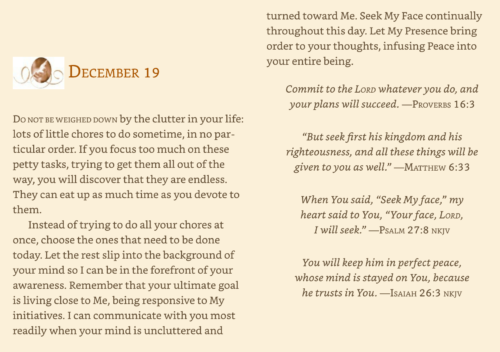The First Incarnation
In the beginning was the Word, and the Word was with God, and the Word was God. . . . All things came to be through him, and without him nothing came to be. —John 1:1, 3
Drawing on the wisdom of Franciscan theology, Richard Rohr views Incarnation as beginning first with the birth of the cosmos, long before the birth of Jesus:
What was God up to in those first moments of creation? Was God totally invisible before the universe began, or is there even such a thing as “before”? Why did God create at all? What was God’s purpose in creating? Is the universe itself eternal, or is the universe a creation in time as we know it—like Jesus himself?
Let’s admit that we will probably never know the “how” or even the “when” of creation. But the question that religion tries to answer is mostly the “why.” Is there any evidence for why God created the heavens and the earth? What was God up to? Was there any divine intention or goal, or do we even need a creator “God” to explain the universe?
Most of the perennial traditions have offered explanations, and they usually go something like this: Everything that exists in material form is the offspring of some Primal Source, which originally existed only as Spirit. This Infinite Primal Source somehow poured itself into finite, visible forms, creating everything from rocks to water, plants, organisms, animals, and human beings. This self-disclosure of whomever you call God into physical creation was the first Incarnation (the general term for any enfleshment of spirit), long before the personal, second Incarnation that Christians believe happened with Jesus.
When Christians hear the word “incarnation,” most of us think about the birth of Jesus, who personally demonstrated God’s radical unity with humanity. But I want to suggest that the first Incarnation was the moment described in Genesis 1, when God joined in unity with the physical universe and became the light inside of everything. This, I believe, is why light is the subject of the first day of creation.
The Incarnation, then, is not only “God becoming Jesus.” It is a much broader event, which is why John first describes God’s presence in the general word “flesh” (John 1:14). John is speaking of the ubiquitous Christ we continue to encounter in other human beings, a mountain, a blade of grass, or a starling.
“Christ” is a word for the Primordial Template (Logos or Word) through whom “all things came into being, and not one thing had its being except through him” (John 1:3). Seeing in this way has reframed, reenergized, and broadened my own religious belief, and I believe it could be Christianity’s unique contribution among the world religions.
The Second Incarnation Flows from the First
Father Richard writes of the Incarnation of Christ in the person of Jesus:
Through the act of creation, God manifested the eternally outflowing Divine Presence into the physical and material world (see Romans 8:19–25). Ordinary matter is the hiding place for Spirit, and thus the very Body of God. Since the very beginning of time, God’s Spirit has been revealing its glory and goodness through the physical creation.
Christians believe that this universal Christ presence was later “born of a woman under the law” (Galatians 4:4) in a moment of chronological time. This is the great Christian leap of faith.
We daringly believe that God’s presence was poured into a single human being, so that humanity and divinity can be seen to be operating as one in him—and therefore in us! But instead of saying that God came into the world through Jesus, maybe it would be better to say that Jesus came out of an already Christ-soaked world. The second Incarnation flowed out of the first, out of God’s loving union with physical creation. [1]
Jesus offered the world a living example of fully embodied Love that emerged out of our ordinary, limited life situations. For me, this is the real import of Paul’s statement that Jesus was “born of a woman under the law.” In Jesus, God became part of our small, homely world and entered into human limits and ordinariness—and remained anonymous and largely invisible for his first thirty years. Throughout his life, Jesus himself spent no time climbing, but a lot of time descending, “emptying himself and becoming as all humans are” (Philippians 2:7), “tempted in every way that we are” (Hebrews 4:15) and “living in the limitations of weakness” (Hebrews 5:2).
Jesus walked, enjoyed, and suffered the entire human journey, and he told us that we could and should do the same. His life exemplified the unfolding mystery in all of its stages—from a hidden, divine conception, to a regular adult life full of love and problems, punctuated by a few moments of transfiguration and enlightenment, and all leading to glorious ascension and final return. As Hebrews 4:15 states, “For we do not have a high priest who is unable to sympathize with our weakness, but we have one who was like us in every way, experienced every temptation, and never backtracked” (my translation). We do not need to be afraid of the depths and breadths of our own lives, of what this world offers us or asks of us. We are given permission to become intimate with our own experiences, learn from them, and allow ourselves to descend to the depth of things, even our mistakes, before we try too quickly to transcend it all in the name of some idealized purity or superiority. God hides in the depths and is not seen as long as we stay on the surface of anything—even the depths of our sins. [2]
